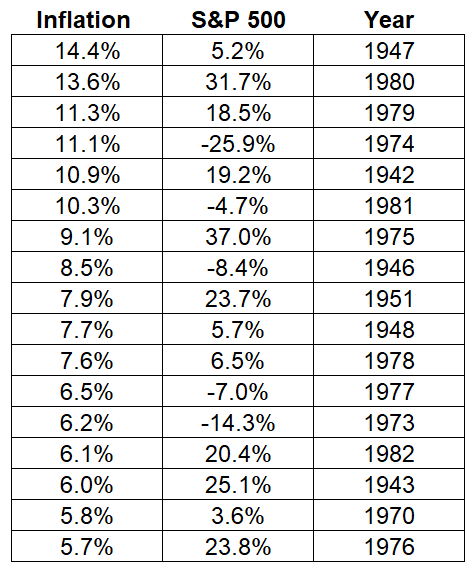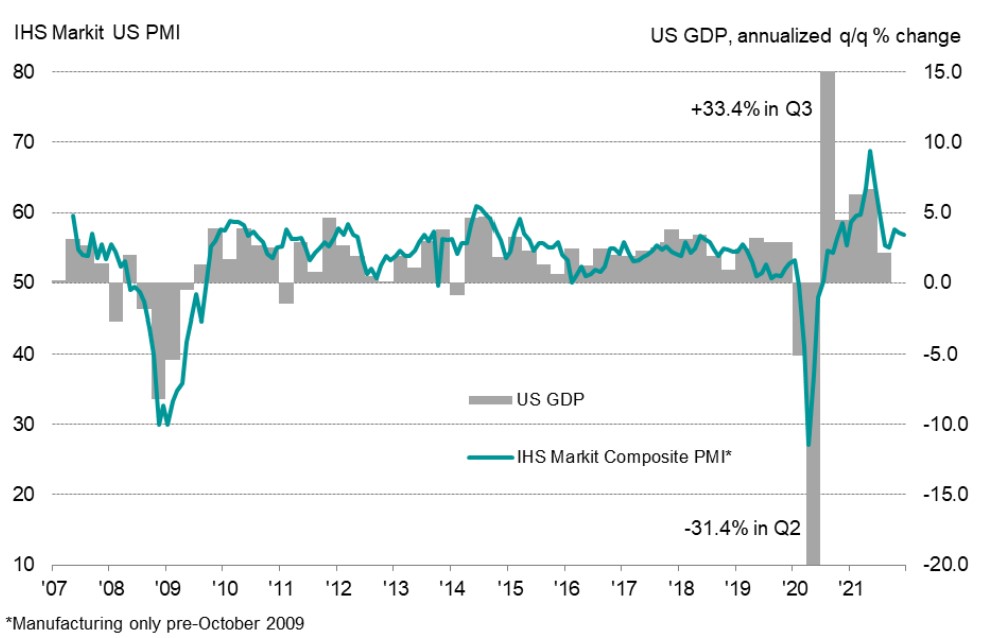| Yahoo Finance recently belittled inflation fears, calling them “exaggerated.” Meanwhile, contrasting viewpoints from The Wall Street Journal and others continuously point to the red-hot, record-level pricing increases we’ve been seeing. So, which end of the spectrum is right? Take the good with the bad No matter how despairing the news might make the current inflation rate sound, keep in mind that even when inflation has been as high or higher than it is right now, the stock market has held up pretty well in the past. The average returns for the S&P 500 Index from 1947 to 1976 were 9.4%—that’s basically the long-term average over the past 90+ years. Eight out of the 17 years had double-digit returns. As shown below, nearly one-third of the time, returns were more than 20% when inflation was the highest. Inflation and S&P 500 Index from 1947 to 1976 
Source: awealthofcommonsense.com For additional perspective, the IHS Markit U.S. Composite PMI, which measures economic trends in the manufacturing and service sector, rose to 56.0 in February 2022 from an 18-month low of 51.1 in the previous month. What’s more? Gross domestic product (GDP) growth is expected to hit its best percentages since 1984, not to mention that unemployment is at multi-year lows and wage growth is growing more rapidly than the inflation rate (5.7% since January 2021). IHS Markit Composite PMI and U.S. GDP 
Source: IHS Markit, U.S. Bureau of Economic Analysis The takeaway People experience inflation on a visceral level, and that gives it outsized influence. In fact, inflation makes people unhappy in ways that are disproportionate to the actual concerns economists have about inflation. But when we add in anecdotal observations like the low unemployment rate, strengthening labor market, more homeowner equity, more retirement investing, heightened personal savings, and just overall healthier household balance sheets, things might not look so bad. Maybe this isn’t the end of times, but rather a temporary storm that can be weathered with a little perseverance and planning. |
No comments:
Post a Comment